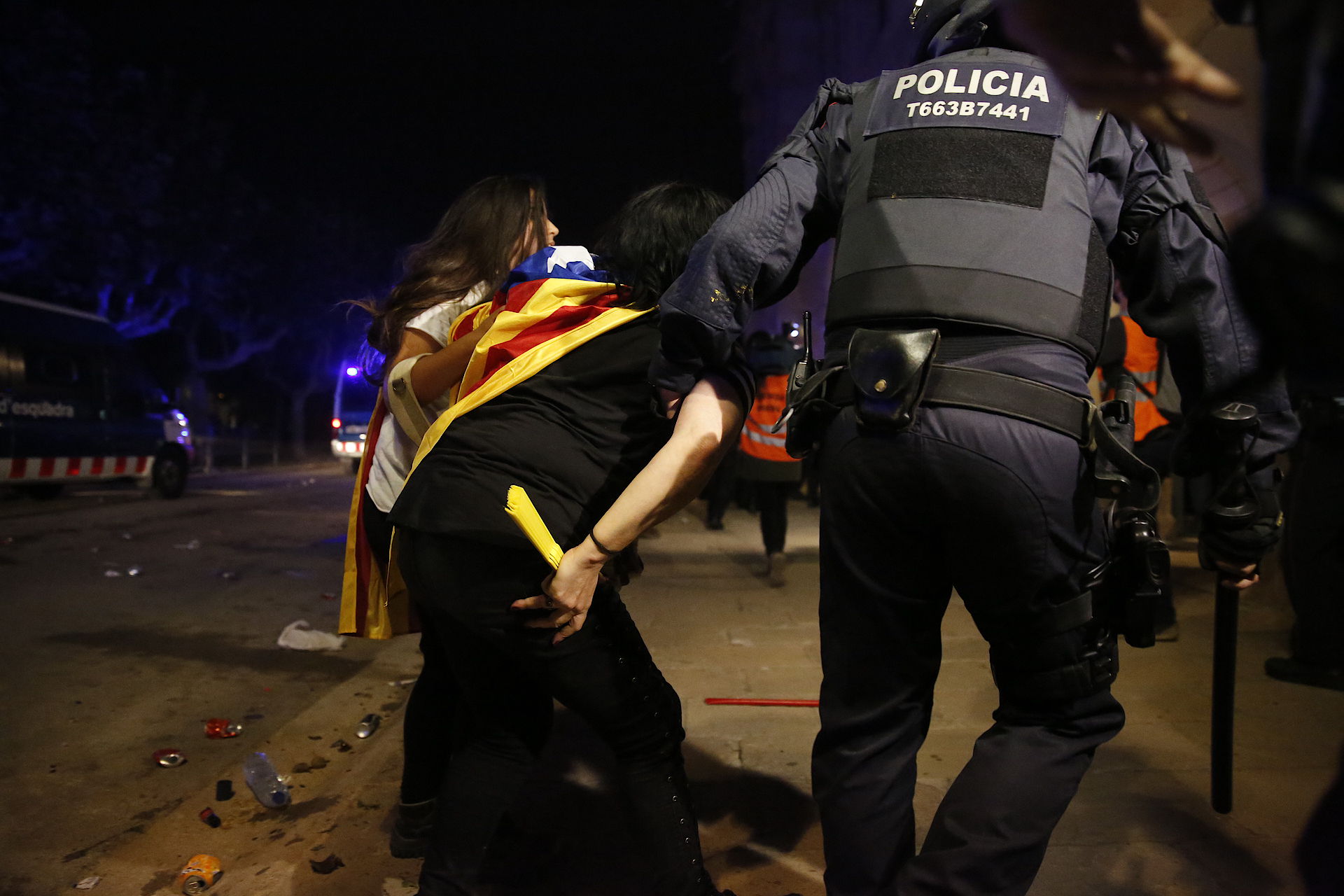A new international report has concluded that Spain's repression in Catalonia is inspiring dictatorships. This is the central idea of the document "Tools of Repression: Spain and Global Trends in Silencing Self-Determination Movements", prepared by the Unrepresented Nations and Peoples' Organization (UNPO) and presented this Wednesday in New York with the support of the Catalan National Assembly (ANC) - in fact, the ANC has formed part of UNPO since 2019. The report places Spain's management of the Catalan independence movement since the 2017 referendum in the context of other similar cases from around the world, showing how "democracies (albeit flawed) have served as inspiration for autocrats who repress self-determination movements in their own states."
In around 40 pages of text, the report states that "the handling of the Catalan national movement’s push for self-determination by Spanish authorities has been shown to have violated core principles of human rights" - especially, it adds, "those related to the International Covenant on Civil and Political Rights (ICCPR), of which Spain is a signatory," it explains. While this may be concerning, "even more worrying is the replication of these practices around the world to counter self-determination movements", since "[Spain] now serves as a model for other more authoritarian states looking to justify their actions against self-determination activists."
First Spain, then Ghana, Algeria, Pakistan, Russia, and Turkey
On the one hand, the document looks in depth at the scope and severity of the criminalization of the independence movement in Catalonia by the Spanish authorities. On the other, it highlights "the parallels found with other UNPO communities that face oppression through similar tools of repression used by Spain". Thus, the comparative analysis begins with the similarities between the charges of sedition and rebellion laid against leaders in Spain and the charges of treason in Ghana against the pro-independence people of Western Togoland (which have intensified since 2019).
From criminal charges it moves to accusations of terrorism, something that happens in Catalonia and in many other places. Such are the cases of the abuse in Algeria of the anti-terrorism fight to silence the self-determination movement in Kabylia (2021), the use of anti-terrorist legislation in Pakistan against minorities (2020), the labeling by Russia of Crimean Tatars as extremists and terrorists (2019) or Turkey's suppression of Kurdish activists (2020). But it doesn't stop here, because national security is also used as the justification to carry out surveillance and espionage against groups seeking self-determination. In Catalonia, the CatalanGate affair has exposed the use of Pegasus spyware against at least 60 independence supporters. But less well known are Iran's operations using spyware against the Kurdish community.
Police repression, the "Gag Law" and Arrest Warrants
The report also focuses on the use of force in demonstrations, drawing a parallel between the Spanish police violence at the 1st October referendum in Catalonia, and later the repression in Vietnam against the Khmer-Krom people in the south-western part of the country (especially from 2021), as well as Indonesia's own "Gag Law" against West Papua's freedom of expression (2022). Finally, the document discusses the improper use of European Arrest Warrants by the Spanish state and notes the similiarities with extradition attempts against Tibetans by China (2018). It also recalls the terms used by Beijing to threaten the president of Taiwan in December 2021: "If you were a separatist leader in the Spanish region of Catalonia, you would be in prison by now. Be grateful that you still live freely in the Chinese province of Taiwan"
In conclusion, the study asserts the need to "set limits to the ability of prosecutors and judges to use broadly defined charges, set standards on the selection of judges, set standards on the judicial oversight of the intelligence services and reform policing of acts of civil disobedience or (even symbolic) declarations of independence," as well as calling for the international community to reaffirm the right to self-determination. The presentation of the report at the City University of New York was attended by the former president of the ANC, Elisenda Paluzie, as well as Salah Bayaziddi (Kurdish activist), Ayla Bakkalli (Tatar activist), Tenzin Yangzom (Tibetan activist) and Ralph Bunche (UNPO).

